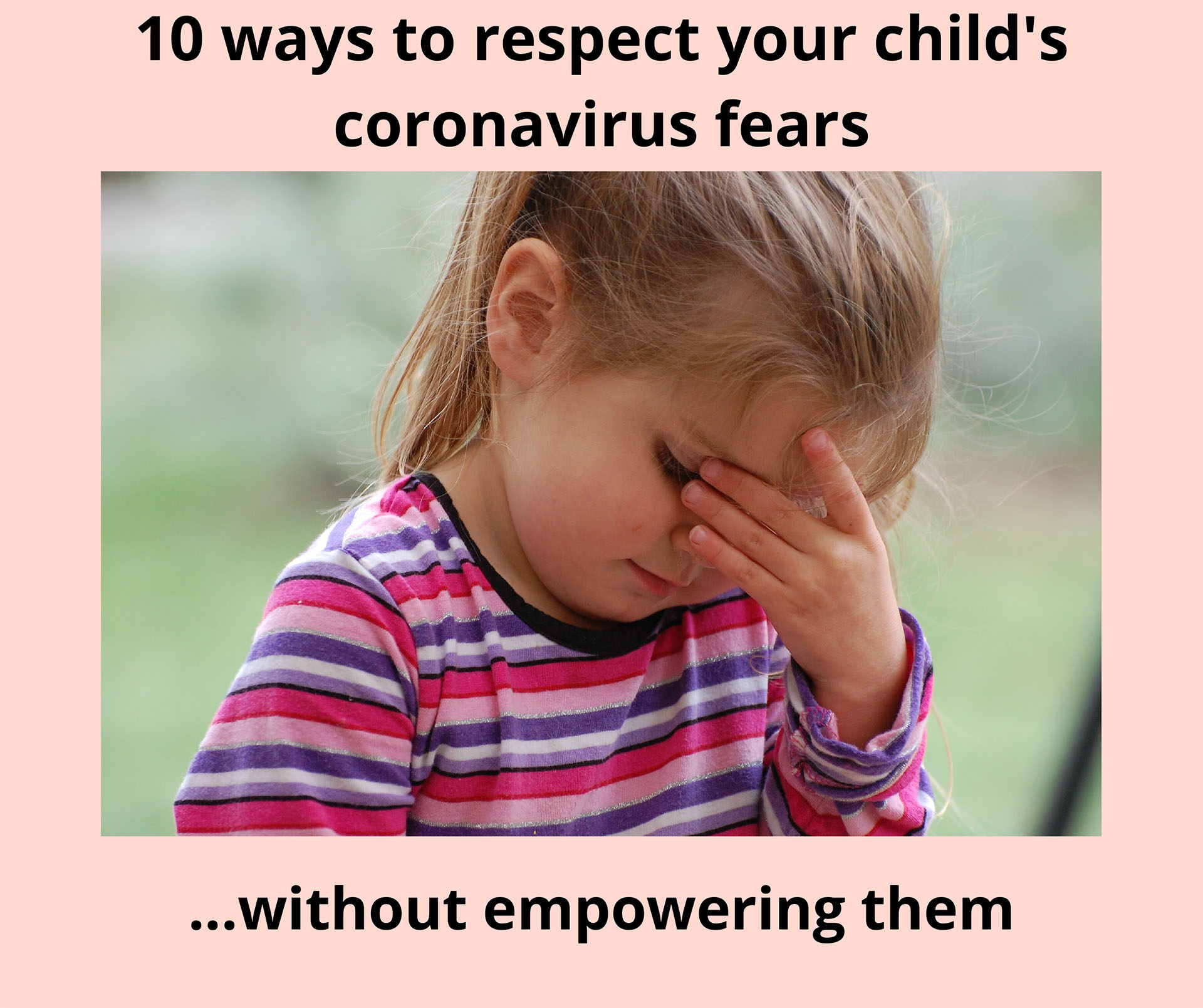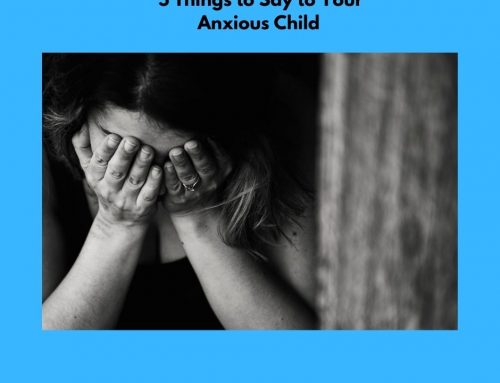Anxiety is a normal emotional state that we all experience at various times in our lives. In fact, not only is anxiety normal, it can also be beneficial when we are faced with tough situations. Low dosages of stress can help keep us alert, it motivates us to face challenges and drives us to solve problems. These low levels of stress are manageable by most of us and can be thought of as necessary. It’s natural for all kids to worry at times, especially during times of uncertainty like what they’re going through right now. Because of personality and temperament differences, some may worry more than others.
It’s our job as parents to help our kids learn to manage stress and everyday anxiety, by role modeling how to react and cope with very real threats, such as the Coronavirus. Children who learn to manage their fears and worries develop a sense of confidence and optimism that will help them deal with life’s challenges.
Even though anxiety can be normal, it becomes a problem when it prevents children from enjoying normal life experiences. When anxiety begins to have an impact on school, friendships, or family, then parents or other adults may need to step in to help the child.
- The goal isn’t to eliminate anxiety, but to help a child manage it.
None of us wants to see a child unhappy or fearful. The best way to help kids overcome anxiety isn’t to try to remove stressors that trigger it, but to help them learn to tolerate their anxiety and function well, despite their anxiousness. As a result, the anxiety will decrease over time. - Don’t avoid things just because they make a child anxious.
Helping your child avoid the things that they are afraid of will make them feel better in the short term, but it will reinforce their anxiety in the long run. One way of helping a child approach a feared situation is to go about it in small steps so that each step is achievable. Parents can also try rewarding a child for trying to face a fear. As well, children can be reminded of fears and difficult situations that they have overcome in the past. - Express positive, but realistic expectations.
You can’t promise your child that their fears are unrealistic or won’t occur (that the needle won’t hurt, or they won’t get sick). But, you can express confidence and the belief that they will be okay and will be able to face their fears. With that belief, their anxiety level will drop over time and your child will gain confidence that you’re not going to ask them to do something that they can’t handle. - Respect your child’s feelings, but don’t empower them.
Validation doesn’t always mean agreement. So, if your child is terrified about going to school to take a test, you don’t want to belittle their fears, but you also don’t want to amplify them. You want to listen and be empathetic, help them understand what they’re anxious about and encourage them to feel that they can face their fears. The message you want to send is “I know you’re scared and that’s okay. I’m here and I’m going to help you get through this.” - Don’t ask leading questions.
Encourage your child to talk about their feelings, but try not to label those feelings ahead of time. For example, “Are you anxious about the big test? Are you worried about going to your friend’s house?” To avoid this, ask open-ended questions “How are you feeling about the test today?” - Don’t reinforce your child’s fears.
You want to make sure that you aren’t unintentionally, through body language or tone of voice, sending a message that your child should be worried. - Encourage your child to tolerate their anxiety.
Running away from fears and anxiety gives them power. By facing fears, your child will learn to do what they have to do, despite feeling nervous. This will empower your child and improve their self-esteem and confidence. The anxiety may not go away, but, over time, it should dissipate substantially. - Try to keep the anticipatory period short.
When we’re afraid of something, the hardest time is really before we do it. So, another rule for parents is to try to eliminate or reduce the anticipatory period. If a child is nervous about going to a doctor’s appointment, you don’t want to start talking about it 2 hours beforehand. Try to shorten the period of discussion. - Think things through with your child.
Sometimes it’s helpful to talk through what would happen if a child’s fear came true- how would they handle it? For some kids, having a plan can reduce the uncertainty. - Try to model healthy ways of handling anxiety.
Kids are perceptive. Let your kids see and hear how you manage stress and anxiety. Let them see that you can manage your nerves calmly and feeling good about getting through it. Parents need to acknowledge and understand their own anxieties and make an effort to contain them in the presence of their children. Sometimes parents need to act brave, even if they don’t feel brave. If a parent is overly anxious and over-protective, this anxiety can easily be communicated to a child.









